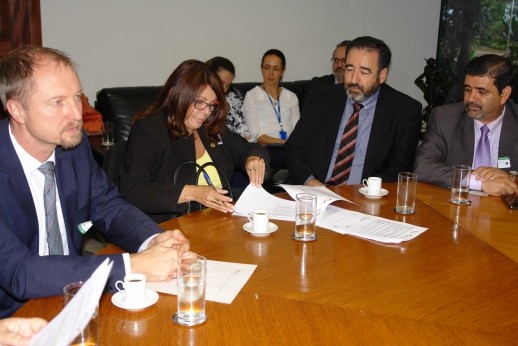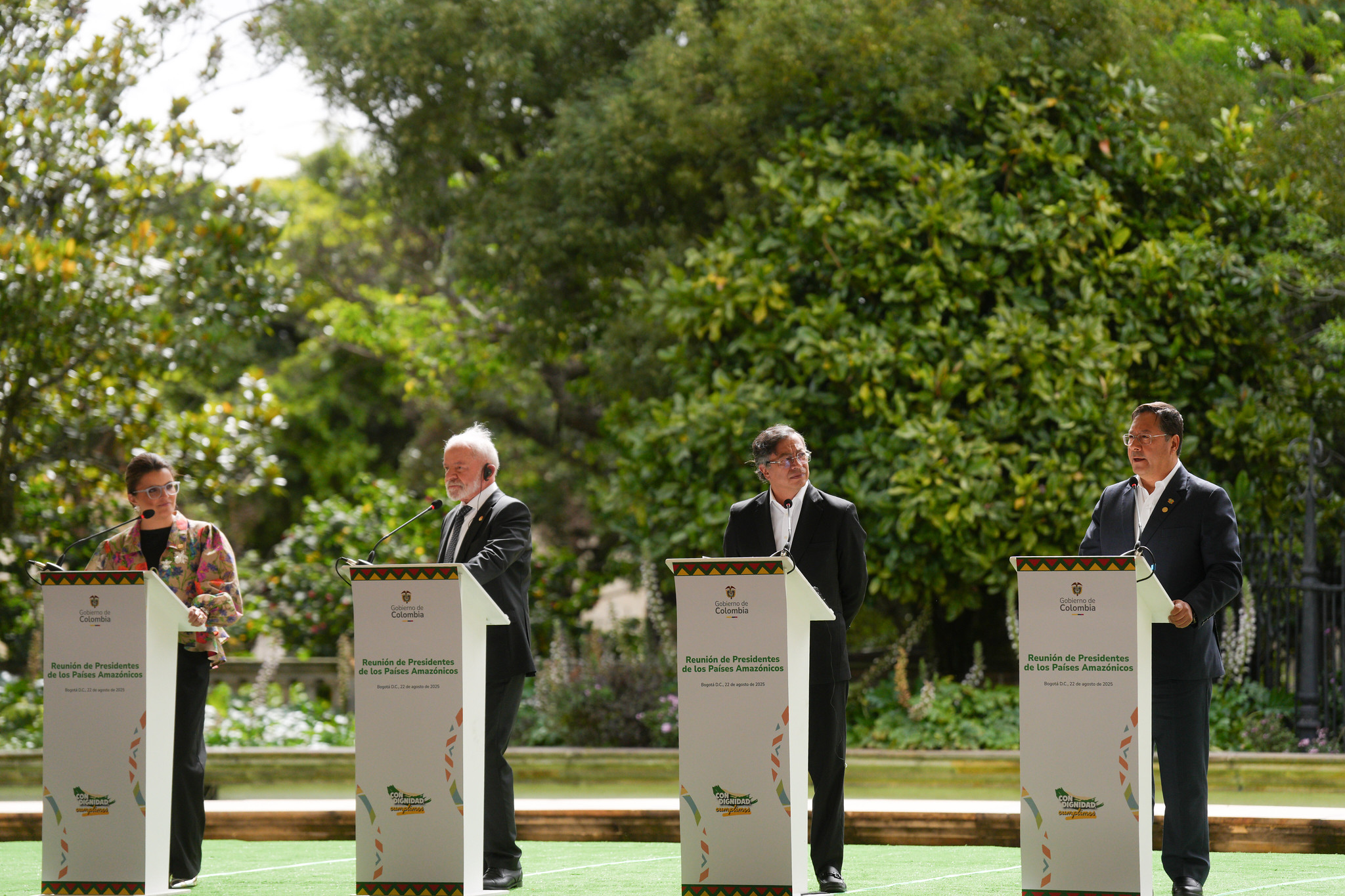In the event, the president of IBAMA thanked ACTO and the German Cooperation support and said that the use of the equipment will bear important fruits in the work of the institution. She also commented on the interest of using the Brazilian National System for the Control of the Origin of Forest Products (Sinaflor) together with the countries of the Amazon Cooperation Treaty that borders Brazil. “Ibama is willing to cede the program in its entirety at no cost to the countries. We are interested in scheduling meetings to try that the systems we use are as similar as possible to harmonize the levels of control “, she said.
For ACTO Secretary General, the project is taking an important step in the conservation of biodiversity. “We are now making this delivery to IBAMA and SFB in Brazil and then to other institutions, technical focal points of the other seven Member Countries, which demonstrates strong support for the sustainable management of biodiversity resources in the countries and compliance with CITES”, she said.
For the Head of the LFP, working together is very important to reach the scale that Brazil needs to follow up on its objectives.
Simon Triebel and Martin Schroeder of the German Cooperation emphasized the importance of the Amazon biodiversity, the population and the support of the German government through the regional project of ten million Euros and of the staff that each institution provides.
Also, the directors as well as coordinators, experts and other employees in each institution from the areas of environment, biodiversity, trade and research participated in the assignment ceremony. Shortly after the signing, visits were made to the Coordination of Foreign Trade COMEX / CGMOC / DBFLO of Ibama, CITES Scientific and Administrative Authority and National Technical Focal Point of the Project where the equipment’s are, and to the Department of Timber Anatomy and Morphology / LPF / SBF, CITES Scientific Authority in order to demonstrate the use of the Scanning Electron Microscope (SEM), which is also being delivered.
The equipment being transferred to Ibama headquarters and states – GPS, computers, nobreaks, tablets (R $ 594,524,00) will contribute to strengthen the Brazilian National System for the Control of the Origin of Forest Products (Sinaflor) and the institutional capacities for collection, analysis and verification of field data of registered projects of management plans and authorized exploitation of forest species, facilitating the recording and use of information previously sent by the Sinaflor, in applications, in real time. Likewise, they will be used to modernize the equipment used by the technicians who issue the electronic licenses of the Cites and Non-Cites Licensing System (Siscites) for the trade of species and products of wild origin.
The equipment delivered to the Forest Products Laboratory (LPF) of the Brazilian Forest Service (SFB) as support for the structuring of the Technical Support Center for the Identification of Timber of the Laboratory is an Scanning Electron Microscope (SEM) (R $ 699,330.13), the first of its kind in Brazil, with high technology capability that allows for observations up to 100,000 times in size, extending more than 1,000 times the capacity of a conventional optical microscope. In the scope of the Project, it will be used by the LPF for timber identification tests in the areas of anatomy and morphology to differentiate similar timber species from each other to improve control and strengthen the traceability mechanisms used with priority species threatened by trade.
KfW Project.- The Regional Project is part of a Financial Cooperation Agreement between the Permanent Secretariat of the Amazon Cooperation Treaty Organization (PS / ACTO) and the Government of Germany, through the German Development Bank – KfW, for a value of 10 million euros non reimbursable to the eight countries of the Amazon Basin, members of ACTO. Its objective is to increase the efficiency and effectiveness of management, monitoring and control of wild fauna and flora species threatened by trade in ACTO Member Countries, in order to contribute to the conservation of the Amazonian biodiversity, particularly of species listed in CITES – Convention on International Trade in Endangered Species of Wild Fauna and Flora.


